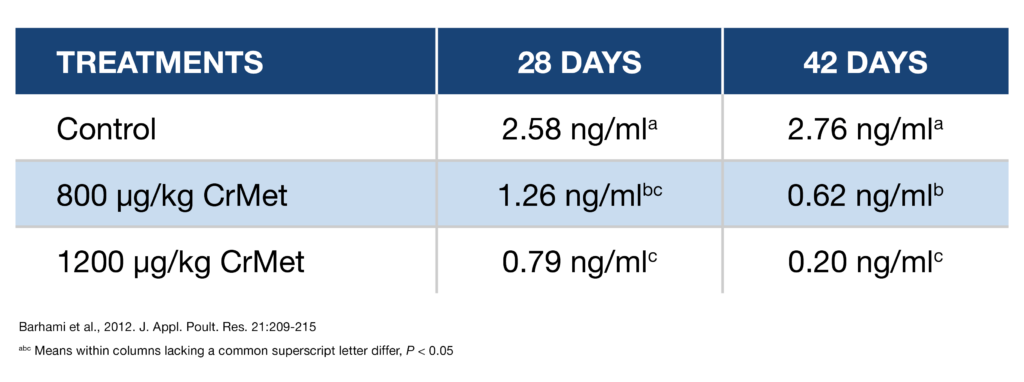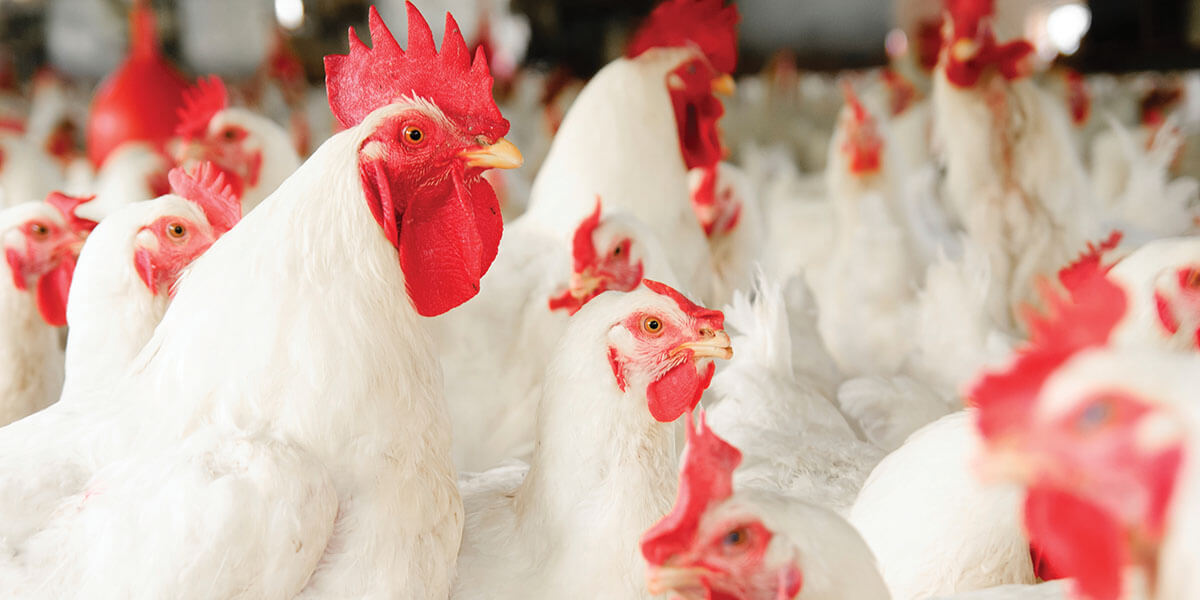During hot and humid weather conditions, chickens are especially sensitive and at risk of overheating. Since chickens have a high normal body temperature and no sweat glands, they rely on panting to release heat from their bodies and often raise their wings to allow heat to radiate from this lightly feathered area.
This process of releasing heat requires more energy from the bird than by simply sweating. Eventually, without relief from the heat, birds will often tire from heat exhaustion.
When chickens pant excessively, it increases their respiratory rate and lowers the amount of ionized calcium in their body. For laying hens, since they require a high amount of calcium for eggshell formation, it often results in the development of thin-shelled or smaller eggs and/or a decrease in egg production. For broilers, producers will often see a decrease in feed intake, feeding efficiency and growth rate.
The bottom line — heat stress causes serious economic losses in the poultry industry.
Zinpro Corporation has been working to find nutritional solutions using performance trace minerals to help alleviate the negative consequences of heat stress in susceptible animals. Adjusting the nutrition of your laying hens or broilers can be a more economical strategy than investing in facility structure changes to mitigate the effects of heat stress in poultry operations.
Chromium Can Help Mitigate Heat Stress
Trace minerals are involved with many antioxidant systems in the animal which counteract the effects of oxidative stress caused by heat stress. Research has shown that chromium (Cr) increases thermal tolerance because it lowers the levels of a hormone called corticosterone. Elevated levels of corticosterone reduce levels of dopamine, causing the bird to behave in a hectic manner. This increases the bird’s energy expenditure, generates a lack of appetite and results in a cascade of metabolic events that culminate in oxidative stress.
The following chart demonstrates how feeding chromium methionine can help reduce corticosterone** levels in broilers, which in turn helps mitigate the effects of oxidative stress caused by heat stress:

By including chromium methionine from Availa-Cr in the poultry diet, producers can help lower the levels of corticosterone, resulting in calmer animal behavior. This allows birds to maintain feed intake and avoid the negative cascade of events from the reduced feed intake that typically corresponds with periods of heat stress.
Since corticosterone is also a catabolic hormone, elevated levels of corticosterone can result in a reduction in muscle protein deposition and an increase in the fat deposition. This is undesirable to the industry because it reduces the meat yield and generates economic losses.
Contact your Zinpro representative to learn more about performance trace minerals, including Availa® Cr or MICROPLEX®, and how these can help to mitigate the negative consequences of heat stress in your poultry operation.
Note: Not all products available in all markets.

